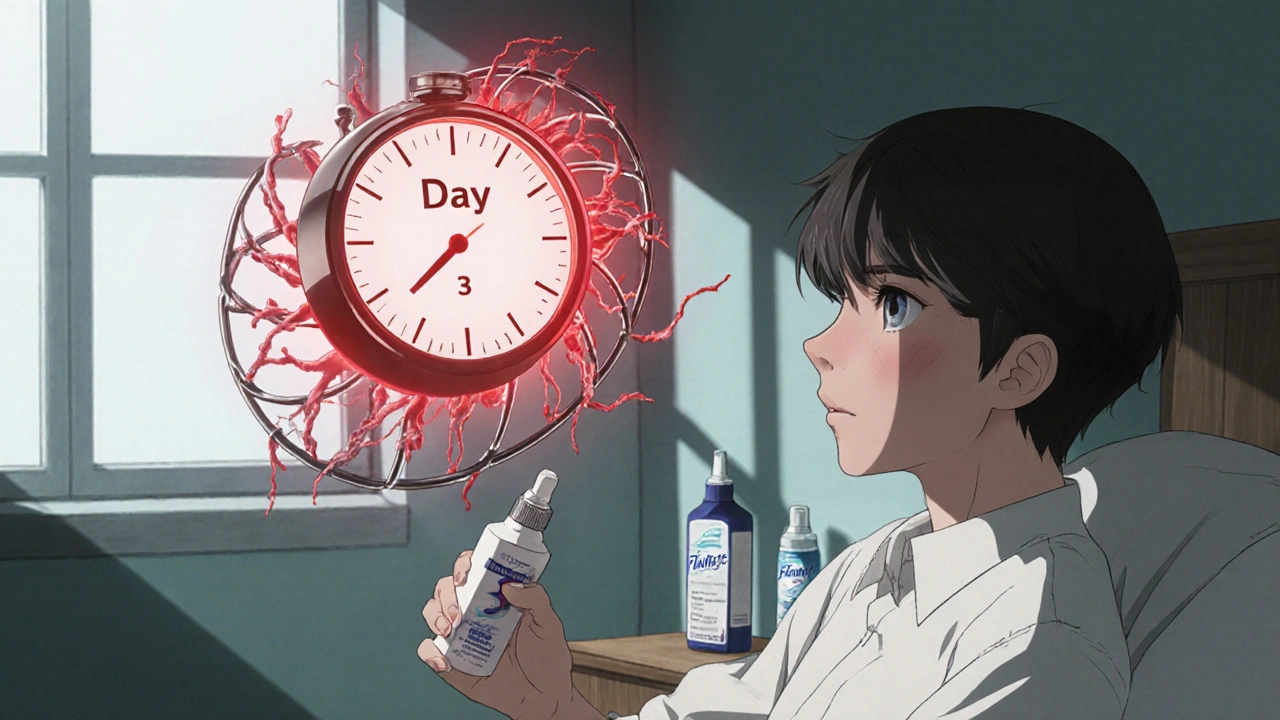Afrin Side Effects: What You Need to Know Before Using Nasal Decongestants
When you reach for Afrin, a nasal decongestant spray containing oxymetazoline that quickly shrinks swollen blood vessels in the nose. Also known as oxymetazoline nasal spray, it gives fast relief—but that relief comes with a hidden cost. Most people use it once or twice without thinking twice. But if you keep using it beyond three days, your body starts fighting back. What feels like a cold coming back? It’s not. It’s your nasal passages becoming dependent on the spray just to stay open.
This is called rhinitis medicamentosa, a condition caused by overuse of topical decongestants that leads to chronic nasal congestion. It’s not rare. In fact, doctors see it all the time in people who thought they were just treating a stuffy nose. The spray stops working, so you use more. More leads to worse congestion. It’s a loop—and once you’re in it, quitting isn’t easy. You might feel like you can’t breathe without it. That’s not in your head. It’s physical.
Other Afrin side effects, include burning, dryness, sneezing, and increased heart rate. Some people get headaches. Others report a bitter taste or nosebleeds. Long-term use can damage the lining of your nose, making it more prone to infection and reducing your natural ability to clear mucus. It doesn’t just numb your nose—it changes how it works.
And here’s the thing: Afrin isn’t meant to be a long-term fix. It’s a short-term tool for sudden congestion from allergies or colds. If you’re using it weekly, you’re not managing your condition—you’re masking it. Underlying issues like chronic sinusitis, deviated septum, or even hormonal changes might be the real problem. But Afrin doesn’t fix those. It just makes you feel okay long enough to ignore them.
What you’ll find in the posts below isn’t just a list of symptoms. It’s real stories, real science, and real alternatives. You’ll see how other medications interact with decongestants, why some people develop rebound congestion faster than others, and how to break free without going back to the spray. There’s also advice on natural relief, when to see a doctor, and how to rebuild your nasal health after stopping. This isn’t about scare tactics. It’s about giving you the facts so you don’t end up trapped in a cycle you didn’t even know you were in.
OTC Nasal Sprays: How to Avoid Rebound Congestion and Use Them Safely
Learn how to safely use OTC nasal sprays without triggering rebound congestion. Discover the 3-day rule, safer alternatives like saline and steroid sprays, and how to break the cycle if you're already stuck.

